Entry Category: Law - Starting with P
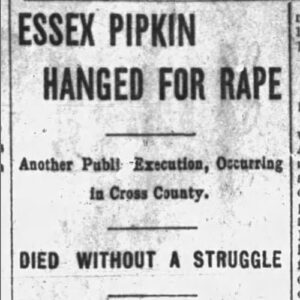 Essex Pipkin Execution Article
Essex Pipkin Execution Article
Pippin, Essex (Execution of)
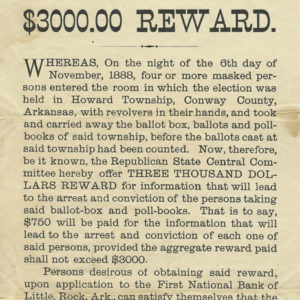 Plumerville Conflict Reward Poster
Plumerville Conflict Reward Poster
Plumerville Conflict of 1886–1892
Poe, Harry (Trial and Execution of)
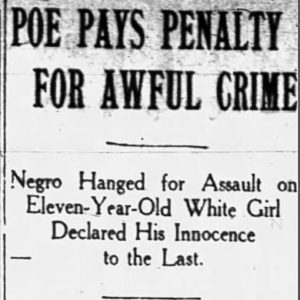 Harry Poe Execution Article
Harry Poe Execution Article
Pointer, John (Execution of)
 Police and Court Building
Police and Court Building
Polk Brothers (Lynching of)
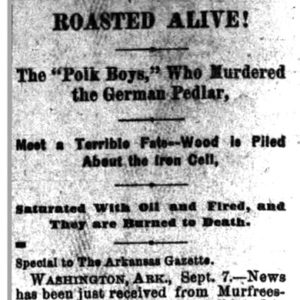 Polk Brothers Lynching Article
Polk Brothers Lynching Article
Pollard, Odell
Pope-Noland Duel
Postoak, John (Execution of)
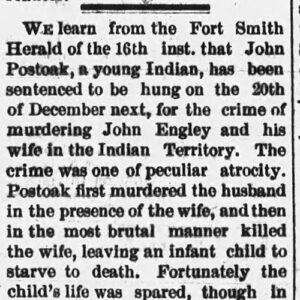 John Postoak Execution Article
John Postoak Execution Article
Pounds, Winston (Lynching of)
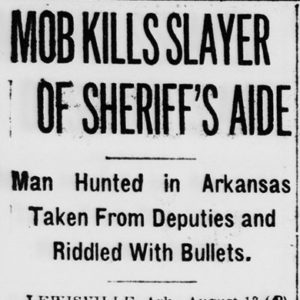 Charles Powell Lynching Article
Charles Powell Lynching Article
Powell, Charles (Lynching of)
Powell, Sam (Lynching of)
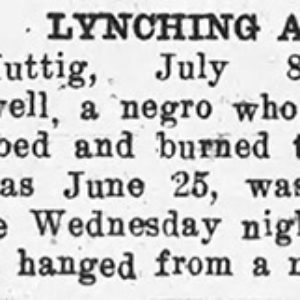 Sam Powell Lynching Article
Sam Powell Lynching Article
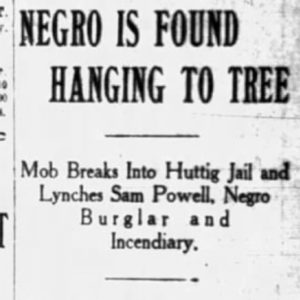 Sam Powell Lynching Article
Sam Powell Lynching Article
Pratt, Parley P. (Murder of)
Price, Norman Dale
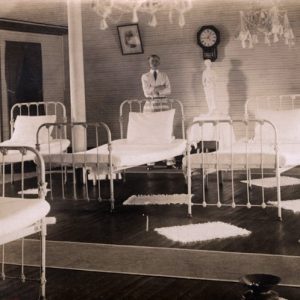 Prison Hospital
Prison Hospital
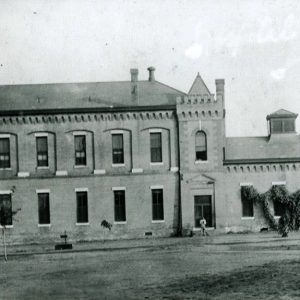 Prison Hospital
Prison Hospital
Prison Reform
 Prison Reform Meeting
Prison Reform Meeting
Pro-ISIL Hack of Arkansas Library Association
Pryor, Doris
Pugsley v. Sellmeyer
 Pearl Pugsley
Pearl Pugsley
 Pulaski County Jail
Pulaski County Jail
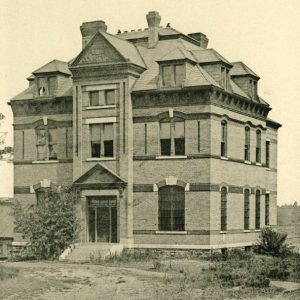 Pulaski County Jail
Pulaski County Jail
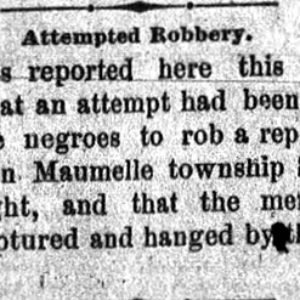 Pulaski County Lynching Article
Pulaski County Lynching Article
Pulaski County Lynching of 1894
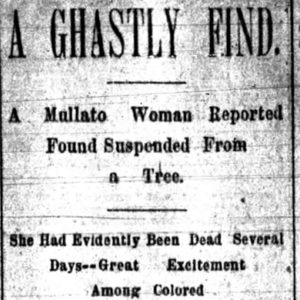 Pulaski County Lynching Article
Pulaski County Lynching Article
Pulaski County Penal Farm
Pulaski County Reported Lynching of 1889
 John I. Purtle
John I. Purtle
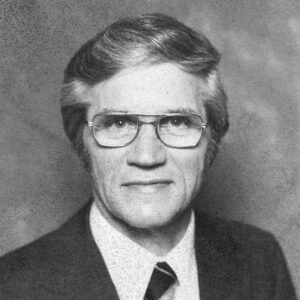 John I. Purtle
John I. Purtle




